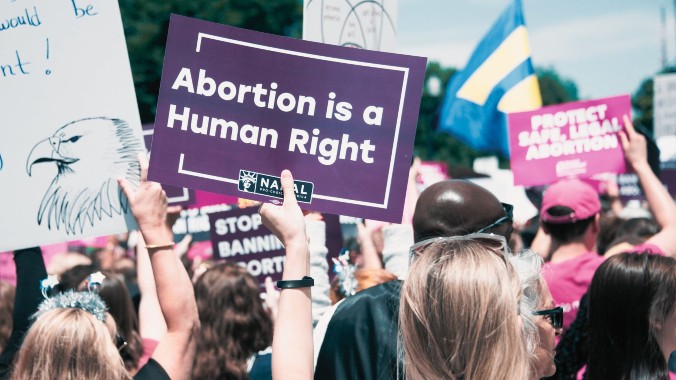South Dakota’s Abortion Ballot Measure Is Even More Popular Than We Thought
A new poll shows support for Amendment G, which would establish a right to abortion in the first trimester in the state Constitution, has a 20-point lead over opposition.
Photo: Shutterstock AbortionPolitics
In May, abortion rights organizers in South Dakota submitted almost double the number of signatures required for their proposed measure to get on the ballot. By the end of the month—despite anti-abortion activists posing as government officials and harassing voters to revoke their signatures—South Dakota’s Republican secretary of state validated enough signatures, allowing the measure to get on the ballot this November.
And a new poll published Monday shows even stronger support for Amendment G than its 55,000 signatures would suggest. According to the South Dakota News Watch poll, 53% of surveyed voters support the measure, 35% oppose it, and 11% remain undecided (which… what’s there to decide??). This is a pretty significant shift from November when 46% of voters in the deep-red state said they supported Amendment G compared with 44% who opposed it.
-

-

-

-

-

-

-

-

-

-

-

-

-

-

-

-

-

-

-

-

-

-

-

-

-

-

-

-

-

-

-

-

-

-

-

-

-

-

-

-








































